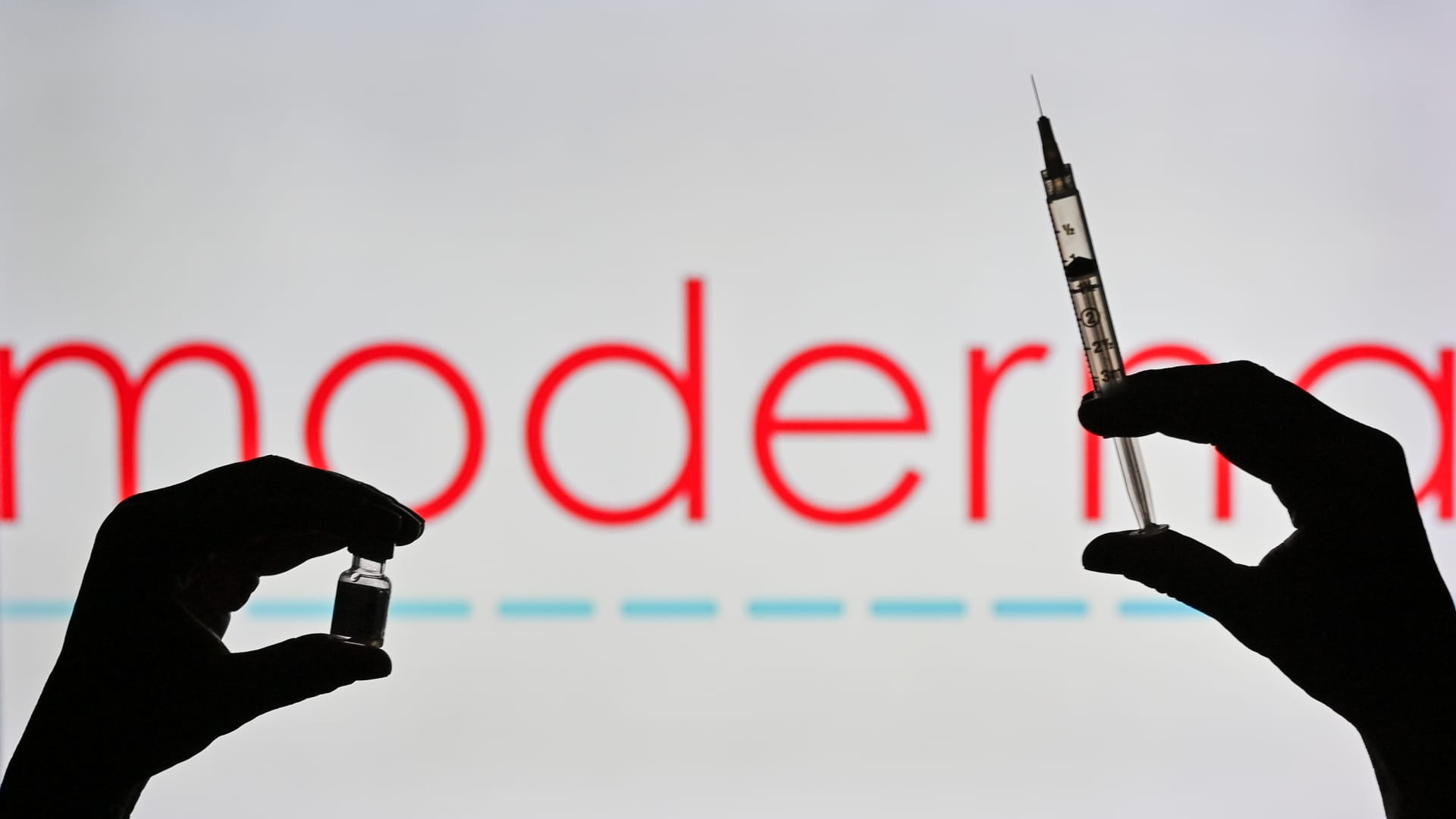Moderna says updated Covid vaccine was effective against highly mutated BA.2.86 variant in trial

Artur Widak | Nurphoto | Getty Images
Moderna‘s new Covid vaccine produced a strong immune response against BA.2.86, a highly mutated omicron variant that health officials are watching closely, according to clinical trial data the biotech company released Wednesday.
The updated shot produced an 8.7-fold increase in protective antibodies against BA.2.86, which has been detected in small numbers nationwide. The Centers for Disease Control and Prevention previously said the strain, also known as “Pirola,” may be more capable of escaping antibodies from earlier infections and vaccinations, but new research also suggests that the variant may be less immune-evasive than feared.
Moderna is the first out of the companies producing updated Covid jabs to release data on how its shot fares against BA.2.86. Moderna, Pfizer and Novavax are slated to roll out new vaccines targeting another omicron strain called XBB.1.5 within weeks, pending potential approvals from the U.S. Food and Drug Administration.
Moderna’s trial results suggest that the company’s jab will still be effective against newer variants of the virus as XBB.1.5 declines nationwide. Last month, Moderna also released clinical trial data suggesting that its new shot provides protection against the now-dominant EG.5, or “Eris,” variant and another rapidly spreading strain called FL.1.5.1.
“Taken together with our previously communicated results showing a similarly effective response against EG.5 and FL.1.5.1 variants, these data confirm that our updated COVID-19 vaccine will continue to be an important tool for protection as we head into the fall vaccination season,” said Moderna President Stephen Hoge in a statement.
New vaccines are set to arrive as Eris and other Covid variants fuel a rise in cases and hospitalizations across the country.
Covid hospitalizations jumped 18.8% during the week ending Aug. 19, and 87% over the past month, according to the latest data from the CDC. But those metrics remain below levels seen when a surge strained hospitals last summer.
Eris accounted for 21.5% of all cases in the U.S. as of Saturday, while FL.1.5.1 accounted for 14.5%, according to the latest data from the CDC.
Last week, the CDC indicated BA.2.86 has been found in four U.S. states, but it’s still so rare that it’s not listed as a standalone strain on the CDC’s variant tracker.









